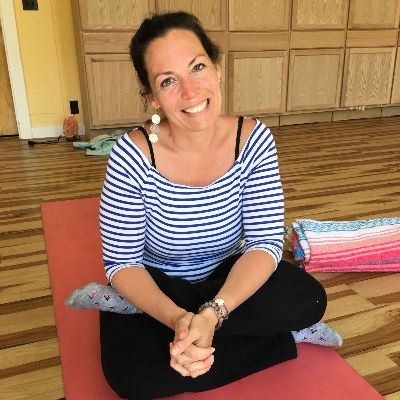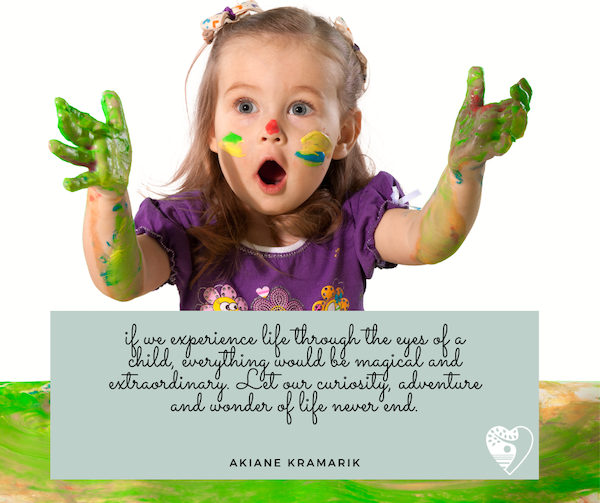| When was the last time you laughed so hard your belly ached? Or you surrendered yourself fully to painting or singing? Doodled? Daydreamed? Danced? Fully enveloped in the wonder of the moment without letting the mind carry you away into your responsibilities and to-do lists? Allowed yourself to PLAY? So what do I mean by play? Play, simply, is an activity engaged in purely for fun and recreation. No particular goal other than doing something for the purposes of enjoyment. Dr. Stuart Brown from the National Institute for Play defines play as “something done for its own sake … it is voluntary, its pleasurable, it offers a sense of engagement, it takes you out of time. And the act itself is more important than the outcome.” He further refers to play as a particular “state of being.” Seems simple, right? Actually not so much. I know for myself, surrendering to play doesn’t happen as often as I’d like. Now that my kids are older, I easily make the excuse that my time is better spent in a “more productive” way … I type these words as I see my phone notifying me of work messages and my washer calling to me with the familiar switch-me-to-the-dryer ding. So much to do each day, and so many tasks requiring what feels like immediate attention. And then my attention drifts to the sunlight bursting through the trees outside my window … sparkling on the azure blue water in my pool. The mermaid inside me awakens, longing to swim, dive and float in the sunshine. Soaking in each glorious moment. I ponder my options, and return to typing … making a commitment to play sometime later today. All work and no play … well you know the rest. In fact, play, frequently associated with child development, is actually an essential activity for adult emotional wellbeing too. Incorporating play into our daily lives can positively affect our bodies (often involving coordination and movement), our minds (improving memory and concentration) and mood (increasing the release of endorphins). It sometimes offers opportunities for collaboration and socialization, and other times can be a chance for much needed relaxation and ease. I read something recently that our culture is currently suffering from play deprivation, which for both adults and children can lead to a variety of negative consequences, according to experts. So how can our mindfulness practice help reintegrate play into our lives? The foundational mindfulness attitudinal tenet of beginners mind is a great place to start. Try seeing the world through the eyes of a child, and look at everything as an opportunity for something more than autopilot may dictate. Also, noticing when the mind wanders into fantasy or imagination — this may be a signal that you need some time to let go of the day-to-day grind and engage in some spontaneous unstructured play. Remember, play is a state of being — voluntary, enjoyable, timeless — not something we do. How can you find more time to play in your life? Let us know! As always, with so much gratitude, Nikki and the Sacred Treehouse faculty |

Nicole Davis is a licensed psychologist practicing at Therapeutic Oasis of the Palm Beaches. Dr. Davis starts with the core belief that each person already has everything they need to live a life of joy and fulfillment, and that therapy is just a process of uncovering their inherent wholeness. Dr. Davis gently invites her clients to uncover their strengths in a safe and non-judgmental environment. Dr. Davis completed MBSR facilitator training through the Center for Mindfulness at UCSD. Dr. Davis is also a 200-hour trained yoga teacher registered with Yoga Alliance.

